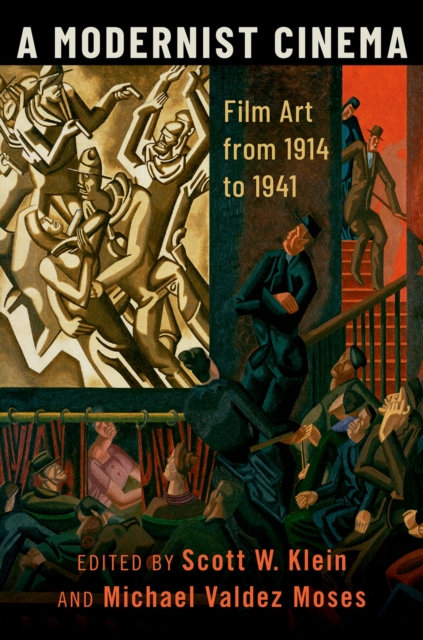
A Modernist Cinema : Film Art from 1914 to 1941 PDF
Edited by Scott W. Klein, Michael Valdez Moses
Description
In A Modernist Cinema, sixteen distinguished scholars in the field of the New Modernist Studies explore the interrelationships among modernism, cinema, and modernity. Focusing on several culturally influential films from Europe, America, and Asia produced between 1914 and 1941, this collection of essays contends that cinema was always a modernist enterprise. Examining the dialectical relationship between a modernist cinema and modernity itself, these essays reveal how the movies represented and altered our notions and practices of modern life, as well as how the so-called crises of modernity shaped the evolution of filmmaking. Attending to the technical achievements and formal qualities of the works of several prominent directors - Giovanni Pastrone, D. W. Griffith, Sergei Eisenstein, Fritz Lang, Alfred Hitchcock, F. W. Murnau, Carl Theodore Dreyer, Dziga Vertov, Luis Buuel, Yasujiro Ozu, John Ford, Jean Renoir, Charlie Chaplin, Leni Riefenstahl, and Orson Welles - these essays investigate several interrelated topics: how a modernist cinema represented and intervened in the political and social struggles of the era; the ambivalent relationship between cinema and the other modernist arts; the controversial interconnection between modern technology and the new art of filmmaking; the significance of representing the mobile human body in a new medium; the gendered history of modernity; and the transformative effects of cinema on modern conceptions of temporality, spatial relations, and political geography.
Information
-
Download - Immediately Available
- Format:PDF
- Pages:352 pages
- Publisher:Oxford University Press
- Publication Date:15/09/2021
- Category:
- ISBN:9780199379477
Information
-
Download - Immediately Available
- Format:PDF
- Pages:352 pages
- Publisher:Oxford University Press
- Publication Date:15/09/2021
- Category:
- ISBN:9780199379477






